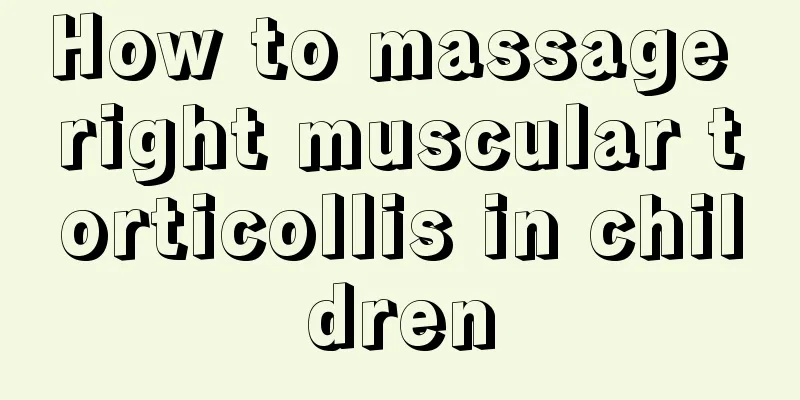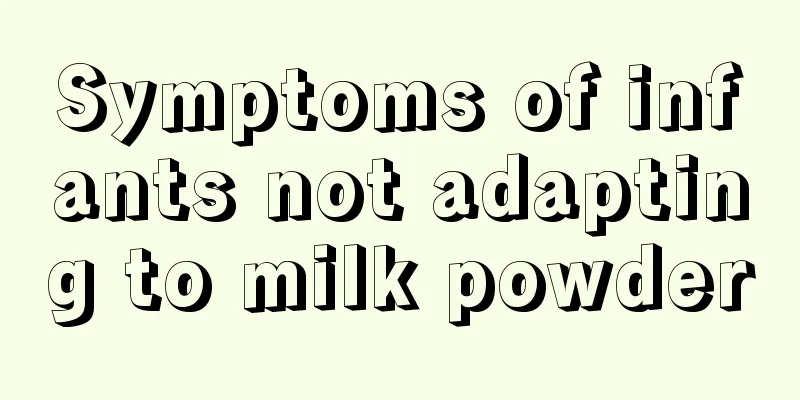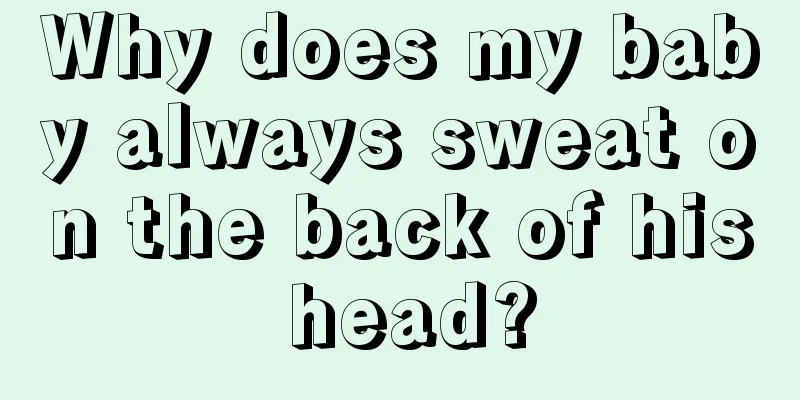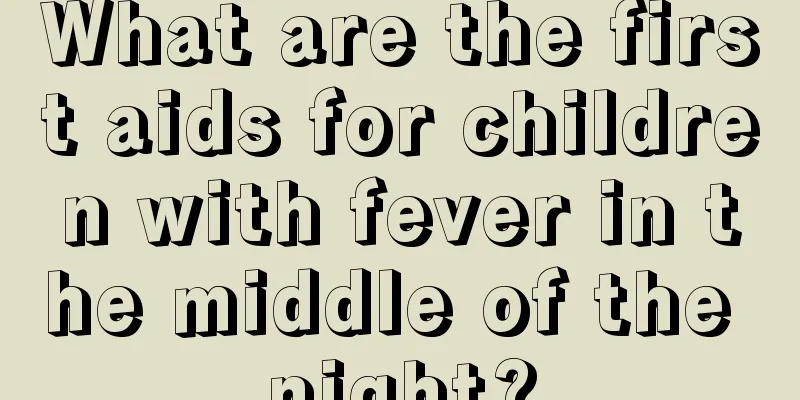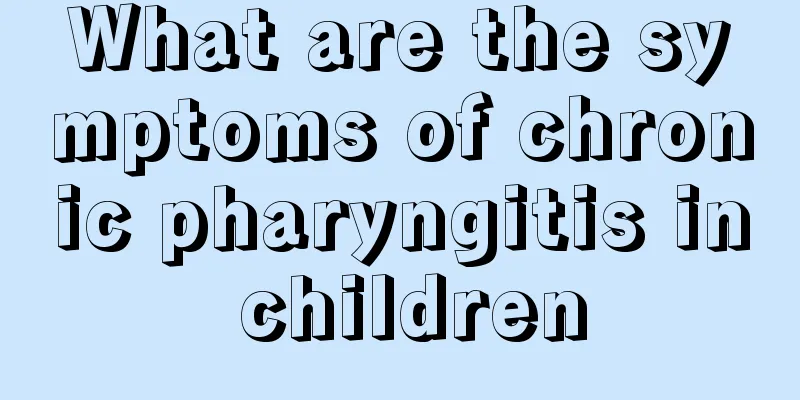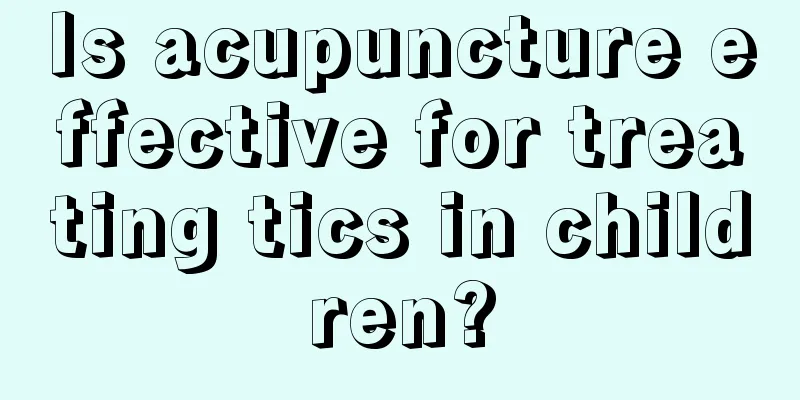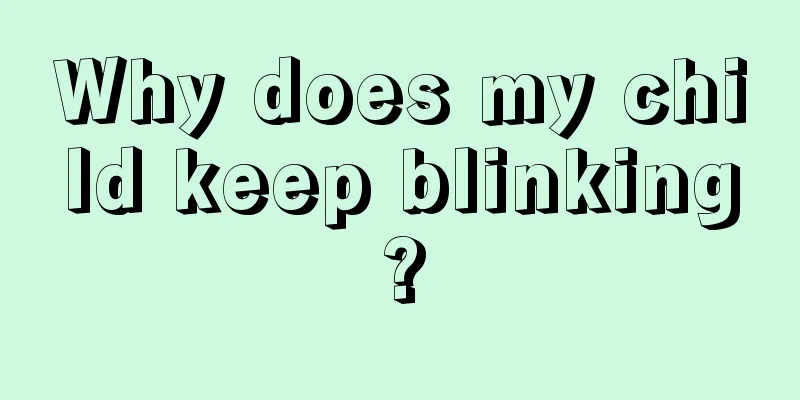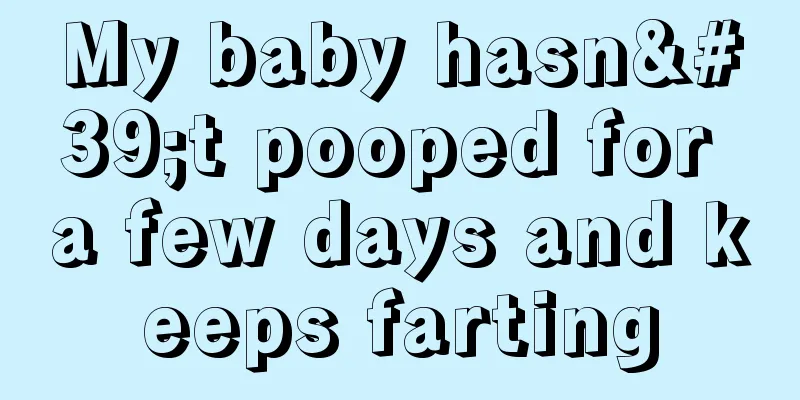What should I do if my child has high fever and convulsions? Here are some ways to deal with it!
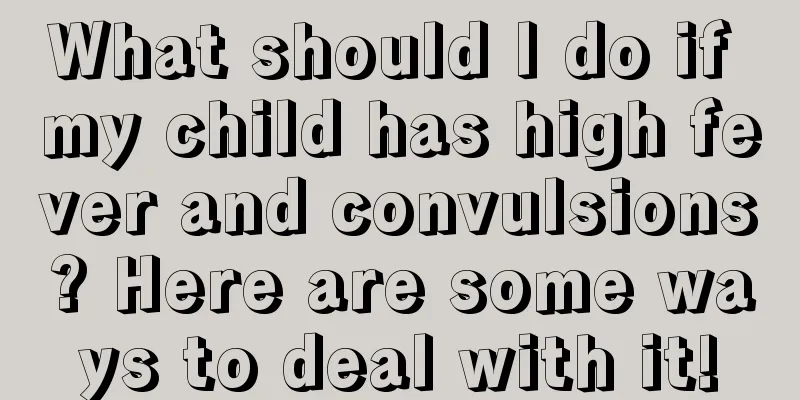
|
If a child has a high fever for a long time, he or she may easily have convulsions. This is because the child's body functions are relatively weak and the ability to resist high fever is not strong, so the body functions will respond in the form of convulsions. At this time, parents will be very worried, but they must not panic. There are many tips in life to cool down children. I will teach you below. First, what should I do if my child has a fever and convulsions? When a child experiences convulsions after having a fever, it is medically called "febrile convulsion". This is mainly due to the incomplete development of the nervous system of infants and young children, such as poor inhibitory function of the cerebral cortex and incomplete formation of nerve myelin sheaths. Once exposed to external stimuli (such as high fever), excitement can easily spread and cause convulsions. Some parents believe that high fever convulsions will burn the baby's brain. Once convulsions occur, they panic and pinch the baby's Ren Zhong, Yongquan and other acupuncture points hard, often injuring the baby's tender skin. In fact, a high fever convulsion will not have a big impact on the child, nor will it damage the brain and leave sequelae, so parents do not need to panic too much. However, if the seizures occur repeatedly and last for a long time, it will cause damage to the brain. When a convulsion occurs, the baby is unconscious. If the vomit in the baby's mouth is inhaled into the trachea, it will cause the risk of suffocation. Therefore, parents need to calmly and promptly deal with vomit in their children's mouths. Second, cooling down 1. Do not give children oral antipyretics when they are having convulsions. 2. Unbutton the collar and loosen the clothes to let the child dissipate heat; if the child has a fever and sweats a lot, change the child into clean clothes. 3. Apply a cold towel or ice bag to the child's forehead, and then use a warm towel to wipe the child's neck, armpits, thighs, etc.; if there is no improvement, use about 35% alcohol to wipe the armpits, thighs and other large blood vessels to cool down. 4. Measure the child's temperature and give him some boiled water after his condition improves slightly to avoid dehydration. 5. After the condition stabilizes, appropriate medication can be used to reduce the temperature. For example, taking oral antipyretics or inserting antipyretic suppositories into the anus can help children reduce fever and stop convulsions as soon as possible. Third, what to do if a 3-year-old child has a fever and convulsions 1. Parents should stay calm, do not panic, and do not shout loudly or shake or slap their children. If the child's head tilts back and his limbs are straight and stiff, do not bend his limbs forcefully and try to minimize stimulation to the child. 2. Let the child lie flat and tilt his head to one side to prevent saliva and vomit from entering the trachea and causing suffocation or aspiration pneumonia. At the same time, unbutton the child's collar to prevent the neck from being too tight and affecting the smoothness of the airway. 3. To prevent children from biting their tongues, you can twist a handkerchief into a twist and stuff it between the child's front teeth. Wrap clean gauze around chopsticks and place between the child's upper and lower teeth to keep the airway open, prevent tongue bites, and prevent saliva and vomit from flowing back into the trachea, which could cause suffocation or aspiration pneumonia. 4. The baby's convulsions will stop in about 3 minutes. After that, give the child more water to prevent collapse caused by excessive sweating. Parents should immediately send their children to the nearest hospital for examination and further treatment. If your child has a fever and convulsions, do not give him or her antipyretic medicine or injection immediately. Instead, send him or her to a professional hospital for an accurate examination as soon as possible to determine the cause before treatment. If the baby has suffered from febrile convulsions, in the early stages of a cold or febrile illness, he should be given oral antipyretics and sedatives, or physical cooling should be used in advance to prevent a sudden increase in body temperature. |
<<: What causes vitiligo in children?
>>: What are the treatments for children snoring and grinding their teeth while sleeping?
Recommend
Why does an 8-year-old child wet the bed?
If an eight-year-old child still wets the bed, it...
3-year-old baby with bronchitis and cough
Nowadays, more and more people are suffering from...
Causes and treatments of rhinitis cough in children
We all know that many people have experienced cou...
How to prevent baby indigestion
In weather like summer, the body is easily invade...
What causes precocious puberty?
In fact, the causes of precocious puberty are ver...
What should I do if my eight-month-old baby refuses to eat complementary food?
Many mothers will find a problem when adding comp...
What to do if a two-year-old baby has hemorrhoids
Babies are the apple of parents' eyes. Now ma...
What should I do if my 3-year-old child drools?
Babies often drool, and many parents don’t know w...
What can children with amblyopia eat to benefit their eyes?
Amblyopia exists during the development of childr...
Can I still eat after holding back breast milk for a day?
Breast milk is a magical thing because it is esse...
What to do if your one-year-old baby has urticaria
Urticaria is a disease that affects a wide range ...
What to do if baby's stool is green and watery
In daily life, babies have low immunity. At this ...
Pain of baby's first teeth
When the baby grows its first tooth, many parents...
Drugs for children's brain nutrition
When children are in the growth and development s...
The baby is born with blue veins on the bridge of the nose
The appearance of blue veins in the human body is...
